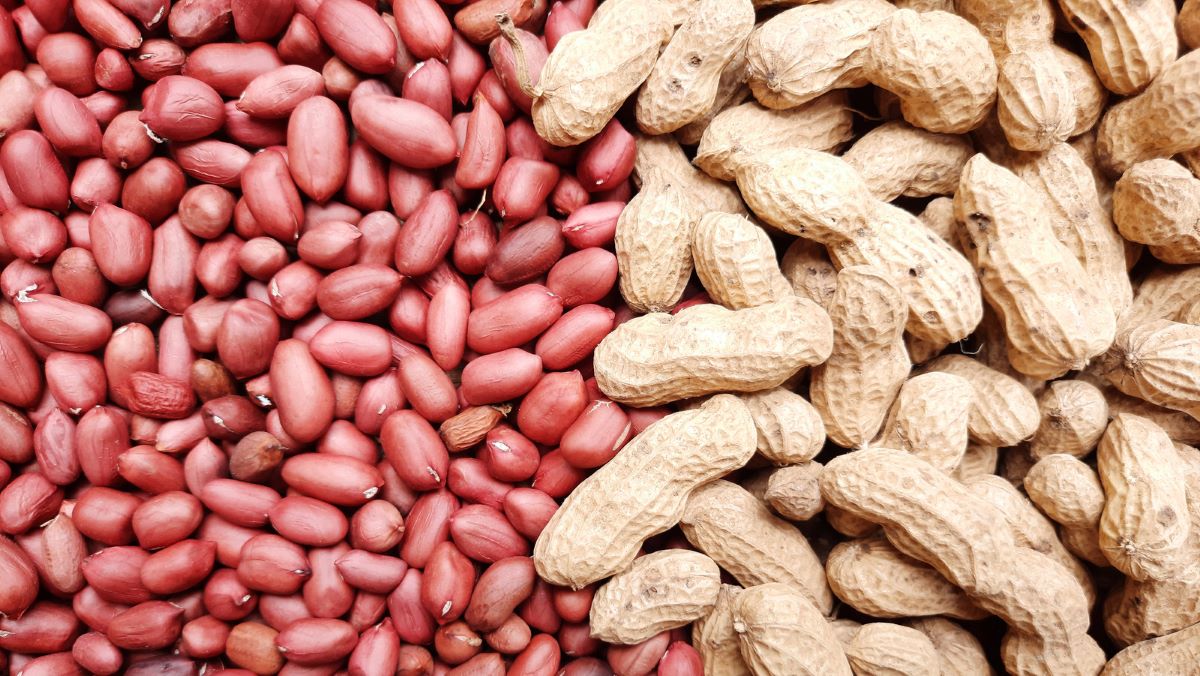

Articles
How To Store Peanuts
Modified: December 7, 2023
Learn the best methods for storing peanuts in this comprehensive article. Discover tips and tricks to keep your peanuts fresh and flavorful for longer.
(Many of the links in this article redirect to a specific reviewed product. Your purchase of these products through affiliate links helps to generate commission for Storables.com, at no extra cost. Learn more)
Introduction
When it comes to storing peanuts, proper storage conditions are essential to maintain their freshness, flavor, and texture. Whether you’ve harvested peanuts from your garden or bought them in bulk, knowing how to store them correctly will ensure that they stay delicious for extended periods.
Peanuts are a popular snack known for their rich taste and nutritional value. They are a great source of protein, healthy fats, and various vitamins and minerals. However, improper storage can lead to spoilage, loss of flavor, and even the growth of mold or pests.
In this article, we will explore the best practices for storing peanuts to keep them fresh and safe for consumption. We will discuss the importance of proper storage conditions, the right storage containers to use, and how to prepare peanuts for storage.
So, if you’re ready to learn how to store your peanuts and enjoy their taste for months to come, let’s dive in!
Key Takeaways:
- Properly storing peanuts is crucial for preserving their freshness and flavor. Understanding optimal storage conditions, choosing the right containers, and monitoring for spoilage are key to enjoying delicious peanuts for an extended period.
- Whether raw or roasted, peanuts should be stored in a cool, dry place away from sunlight and moisture. Regular monitoring, proper sealing, and labeling containers are essential for maintaining the quality and safety of stored peanuts.
Read more: How To Store Peanut Butter
Understanding Proper Storage Conditions for Peanuts
Before we dive into the specifics of storing peanuts, it’s crucial to understand the ideal storage conditions for these delicious legumes. Peanuts require a cool, dry, and dark environment to maintain their quality.
Here are some key factors to consider:
- Temperature: Peanuts should be stored at a temperature between 50°F and 70°F (10°C and 21°C). Avoid extreme temperature fluctuations, as they can cause the peanuts to become rancid or lose their flavor.
- Humidity: Peanuts are sensitive to humidity and moisture. High humidity levels can promote mold growth, spoilage, and the development of off-flavors. The ideal humidity for storing peanuts is around 60-70%. Using a dehumidifier in the storage area can help maintain the right moisture level.
- Air Circulation: Proper air circulation is important to prevent the buildup of moisture and help the peanuts stay dry. Ensure that the storage area is well-ventilated to avoid the risk of mold or mildew.
By understanding these storage conditions, you can create an environment that preserves the quality of your peanuts and minimizes the risk of spoilage.
Choosing the Right Storage Container
When it comes to storing peanuts, selecting the right storage container is crucial for maintaining their freshness and protecting them from external factors that can impact their quality.
Here are some considerations when choosing a storage container:
- Airtightness: Opt for containers that provide an airtight seal. This helps to prevent the entry of moisture, air, and pests that can spoil the peanuts.
- Material: Choose containers made of food-grade materials, such as glass, plastic, or metal. These materials are durable, non-reactive, and won’t leach any harmful substances into the peanuts.
- Size: Consider the amount of peanuts you plan to store and choose a container that can accommodate them without being overly spacious. This helps minimize air exposure and maintain optimal conditions inside the container.
- Opaque or Dark-Colored: Peanuts are sensitive to light, so it’s best to choose containers that are opaque or have dark-colored walls. This prevents exposure to sunlight and helps preserve their flavor and quality.
Based on these considerations, options such as glass jars with airtight lids, plastic containers with locking mechanisms, or metal canisters with tight-fitting lids are ideal for storing peanuts. It’s advisable to avoid using paper bags or non-sealed containers, as they do not provide adequate protection against moisture and pests.
Remember to clean the storage container thoroughly before transferring peanuts into it, ensuring there are no residues or contaminants that could affect the quality of the stored peanuts.
Preparing Peanuts for Storage
Before storing peanuts, it’s essential to properly prepare them to ensure their longevity and quality. These steps will help maintain their freshness and prevent spoilage during storage:
- Clean and Sort: Begin by removing any debris or foreign objects from the peanuts, such as leaves, shells, or stones. Sort through the peanuts to discard any damaged or discolored ones.
- Drying: Peanuts should be thoroughly dried before storage to prevent the growth of mold and spoilage. Spread them out in a single layer on a clean, dry surface for a few days, ensuring they are exposed to proper air circulation. Avoid using high-heat methods for drying, as it can affect the quality of the peanuts.
- Shell Removal: Depending on your preference, you can choose to store peanuts with or without their shells. If you decide to remove the shells, gently crack them open using a nutcracker or your fingers. Be careful not to damage the peanuts inside.
- Roasting (Optional): If you enjoy the flavor of roasted peanuts, you can choose to roast them before storage. Preheat the oven to 350°F (175°C) and spread the peanuts on a baking sheet. Roast them for about 10-15 minutes, stirring occasionally, until they turn golden brown. Allow the roasted peanuts to cool completely before storing.
Once the peanuts are cleaned, dried, and prepared according to your preference, they are ready to be stored in the chosen container. Properly preparing the peanuts ensures that the storage conditions effectively preserve their freshness and taste.
Now that the peanuts are prepared, let’s move on to understanding how to store them in a way that maintains their quality over time.
Storing Peanuts in a Cool and Dry Place
Once peanuts are properly prepared, it’s important to store them in a suitable environment to maintain their freshness. A cool and dry place is the ideal location for storing peanuts.
Here are some guidelines for storing peanuts:
- Temperature: As mentioned earlier, peanuts should be stored at a temperature between 50°F and 70°F (10°C and 21°C). Avoid storing peanuts in areas that are prone to temperature fluctuations, such as near ovens, stoves, or direct sunlight.
- Avoid Moisture: Moisture is one of the biggest enemies of peanut storage. Choose a storage area that is dry, away from sources of humidity like the kitchen sink or dishwasher. Avoid storing peanuts in areas with high humidity, such as the basement or bathroom.
- Proper Ventilation: Ensure that the storage area has proper air circulation to prevent the build-up of moisture. Good air circulation helps to maintain the dryness of peanuts and prevents the growth of mold or mildew.
Consider storing your peanuts in a pantry, cupboard, or a dedicated storage area that meets the above conditions. Avoid storing them in the refrigerator, as the high humidity can affect their texture and flavor.
It’s worth noting that peanuts can absorb odors from their surroundings, so it’s wise to store them away from strong-smelling items like spices, cleaning supplies, or chemicals.
By storing peanuts in a cool and dry place, they can retain their freshness and flavor for an extended period. Now let’s move on to another crucial aspect of peanut storage – avoiding exposure to moisture and humidity.
Read more: How To Store Raw Peanuts
Avoiding Exposure to Moisture and Humidity
Moisture and humidity are the biggest culprits when it comes to peanut spoilage. To ensure the longevity of your peanuts, it’s crucial to protect them from these damaging elements.
Here are some tips to avoid exposure to moisture and humidity:
- Maintain Airtight Packaging: Ensure that the storage container you choose has a secure and airtight seal. This prevents moisture from entering and keeps the peanuts dry. Check the container regularly to ensure the seal remains intact.
- Absorb Moisture: Consider adding moisture-absorbing packets or silica gel packs to the container. These help to absorb any excess moisture and maintain the dryness of the peanuts.
- Keep Away from Water Sources: Store peanuts away from water sources such as sinks, dishwashers, or areas prone to leaks. Even minimal exposure to water can lead to the development of mold and spoilage.
- Refrain from Freezing: Although peanuts can technically be frozen, it’s not recommended for long-term storage. The moisture content in the peanuts can lead to freezer burn and adversely affect their taste and texture.
- Inspect Regularly: Periodically check your stored peanuts for any signs of moisture or mold. If you notice any dampness or growth, quickly remove the affected peanuts and transfer the rest to a new container with fresh moisture-absorbing packets.
By taking these precautions, you can effectively shield your peanuts from the damaging effects of moisture and humidity. Maintaining a dry storage environment helps to extend their shelf life and ensures they remain safe for consumption.
Next, let’s explore another crucial aspect of peanut storage – keeping them away from direct sunlight.
Store peanuts in an airtight container in a cool, dry place to maintain their freshness and prevent them from becoming rancid. Avoid exposing them to heat, moisture, or sunlight.
Keeping Peanuts Away from Direct Sunlight
When it comes to storing peanuts, exposure to sunlight can have a detrimental effect on their quality. Direct sunlight can cause a variety of issues, including flavor loss, rancidity, and a decrease in nutritional value.
Here’s why it’s important to keep peanuts away from direct sunlight:
- Flavor Preservation: Sunlight exposure can lead to the degradation of the peanut’s natural oils, causing a loss of flavor. The peanuts may taste dull or even develop an off-flavor.
- Rancidity Prevention: Sunlight can accelerate the process of oxidation in peanuts, leading to rancidity. Rancid peanuts have a bitter and unpleasant taste.
- Texture Retention: Excessive sunlight can dry out the peanuts, making them dry and stale. This can affect their texture and make them less enjoyable to eat.
- Color Preservation: Prolonged exposure to sunlight can cause the peanuts’ color to fade or become uneven, impacting their visual appeal.
To keep peanuts away from direct sunlight, follow these guidelines:
- Storage Location: Choose a storage area that is shielded from natural light, such as a pantry, cupboard, or a cool, dark corner of your kitchen.
- Opaque Containers: Store peanuts in opaque containers that do not allow sunlight to penetrate. Opt for containers with dark-colored walls or use coverings to protect them from direct light exposure.
- Avoid Glass Containers: While transparent glass jars may be visually appealing, they can expose the peanuts to sunlight. If using glass containers, store them in a cupboard or cover them with a cloth to block light.
By taking these precautions, you can protect your peanuts from the damaging effects of sunlight and ensure that they stay fresh, flavorful, and enjoyable to eat. Now, let’s move on to the importance of monitoring for signs of spoilage or infestation.
Monitoring for Signs of Spoilage or Infestation
When storing peanuts, it’s essential to monitor them regularly for any signs of spoilage or infestation. Early detection can help prevent the spread of issues and ensure the quality and safety of your peanuts.
Here are some signs to watch out for:
- Mold or Moisture: If you notice any mold growth or excessive moisture in the container, it’s a clear indication that the peanuts have been compromised. Remove the affected peanuts immediately and transfer the rest to a new, dry container.
- Off Odors: Pay attention to any strange or unpleasant odors coming from the stored peanuts. Off odors can indicate spoilage or the presence of pests.
- Pest Infestation: Keep an eye out for signs of pests, such as insects, beetles, or weevils, which can infest stored peanuts. Look for small holes, webbing, or grainy residue as possible indicators of pests. If you suspect an infestation, discard the affected peanuts and take necessary measures to prevent further infestation.
To ensure the safety of your stored peanuts, follow these preventive measures:
- Proper Sealing: Ensure that the storage container is tightly sealed to prevent pests from entering and infesting the peanuts.
- Clean Storage Area: Regularly clean the storage area to remove any residues or food particles that can attract pests.
- Inspect Regularly: Check on your stored peanuts periodically. This allows you to catch any signs of spoilage or infestation early on and take appropriate action.
By monitoring for signs of spoilage or infestation, you can maintain the quality and safety of your peanuts. Regular inspections and prompt actions will help ensure that your stored peanuts are free from any issues.
Now that we’ve covered the importance of monitoring, it’s time to discuss the final step: properly sealing and labeling your stored peanuts.
Properly Sealing and Labeling Stored Peanuts
Properly sealing and labeling your stored peanuts is crucial for maintaining their freshness and organization. It helps to ensure that your peanuts remain protected and that you can easily identify them when needed.
Here are some tips for sealing and labeling your stored peanuts:
- Sealing: Ensure that the storage container is tightly sealed to maintain an airtight environment. This helps prevent moisture, air, and pests from entering and affecting the quality of the peanuts. Check the seal regularly to ensure it remains intact.
- Labeling: Label the storage container with the date of storage. This allows you to keep track of the freshness and storage duration of the peanuts. Additionally, you can include any other relevant information, such as the type or variety of peanuts.
- Organization: If you have different types of peanuts or multiple batches, consider using separate containers or dividers to keep them organized. This makes it easier to access and use the peanuts without disturbing the others.
- Stacking: If you have limited space, stack the sealed and labeled containers in a systematic and stable manner. Place the larger and heavier containers at the bottom to avoid any accidents or damage.
Proper sealing and labeling not only help maintain the quality of your stored peanuts but also make it convenient to locate and use them as needed. It promotes proper rotation and ensures that older peanuts are used before newer ones to avoid any wastage.
Remember to follow any specific instructions or recommendations provided by the peanut manufacturer or supplier regarding storage and labeling.
Now that we’ve covered how to properly seal and label your stored peanuts, let’s discuss the recommended storage duration for different types of peanuts.
Read more: How To Store Peanut Oil
Recommended Storage Duration for Different Types of Peanuts
The recommended storage duration for different types of peanuts can vary depending on their freshness, processing, and packaging. It’s essential to be aware of these guidelines to ensure that you consume the peanuts within their optimal timeframe and enjoy them at their best.
Here are some general recommendations for the storage duration of different types of peanuts:
- Raw Peanuts in Shell: Raw peanuts that are still in their shell can be stored for up to one year in a cool, dry place. The shells provide some protection against moisture and pests, helping to preserve the peanuts.
- Raw Shelled Peanuts: If you have shelled raw peanuts, they can be stored for about six months to one year, depending on the storage conditions. Ensure that they are properly sealed and stored in a cool, dry place to maintain their quality.
- Roasted Peanuts: Roasted peanuts, whether in or out of the shell, have a shorter storage duration. They can be stored for about three to six months in an airtight container. Roasted peanuts are more prone to flavor loss and rancidity, so it’s important to consume them within this timeframe for the best taste.
- Commercially Packaged Peanuts: Peanuts that come in commercially packaged bags or containers typically have a “Best By” or expiry date printed on the packaging. Follow these recommendations to ensure that you consume the peanuts while they are at their freshest.
It’s important to note that these storage durations are general guidelines, and the actual shelf life can vary based on factors such as the peanut quality, storage conditions, and processing methods. Always use your best judgment and inspect the peanuts for any signs of spoilage before consuming.
Remember to store peanuts away from moisture, sunlight, heat, and strong odors to maintain their freshness and quality for as long as possible.
By following these recommendations, you can enjoy your peanuts while they are at their best and minimize the risk of consuming spoiled or stale peanuts.
Now that we’ve covered the recommended storage durations, let’s summarize what we’ve learned.
Conclusion
Properly storing peanuts is essential for preserving their freshness, flavor, and quality. By understanding the optimal storage conditions, choosing the right containers, and taking necessary precautions, you can ensure that your peanuts remain delicious and safe for consumption.
Remember to store peanuts in a cool and dry place, away from direct sunlight and sources of moisture. Regularly monitor for signs of spoilage or infestation, and promptly address any issues to prevent further damage.
Sealing and labeling your containers helps to maintain organization and ensures that peanuts are used within their recommended storage duration. By following these guidelines, you can enjoy your peanuts at their peak freshness and flavor.
Whether you have raw peanuts, roasted peanuts, or commercially packaged peanuts, knowing how to store them properly will prolong their shelf life and guarantee a delightful snacking experience.
Lastly, always trust your senses when it comes to peanuts. If you notice any mold, off odors, or unusual textures, it’s best to err on the side of caution and discard the peanuts.
Now that you have a comprehensive understanding of how to store peanuts, put this knowledge into practice and enjoy the delightful taste and nutritional benefits of properly stored peanuts!
Frequently Asked Questions about How To Store Peanuts
Was this page helpful?
At Storables.com, we guarantee accurate and reliable information. Our content, validated by Expert Board Contributors, is crafted following stringent Editorial Policies. We're committed to providing you with well-researched, expert-backed insights for all your informational needs.
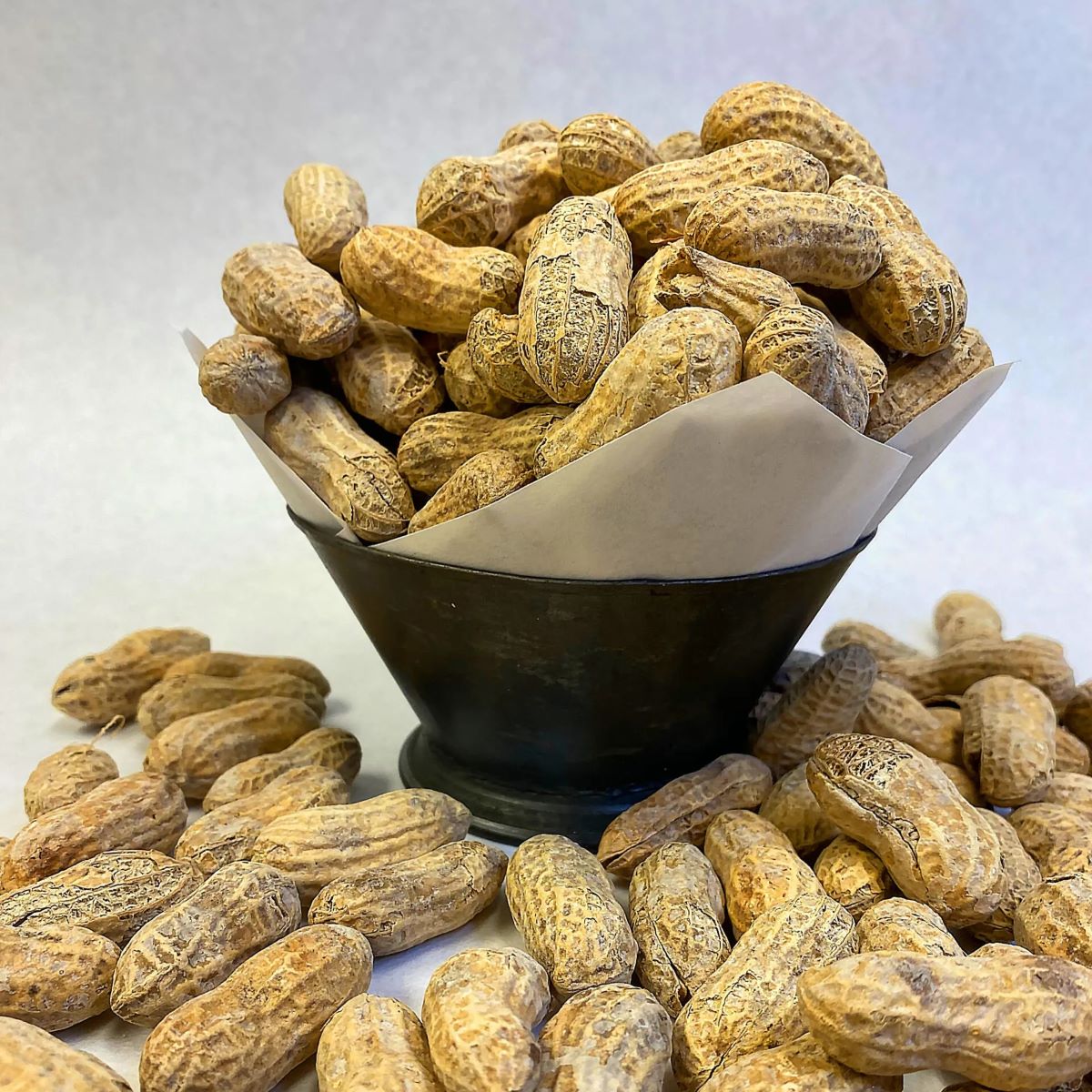
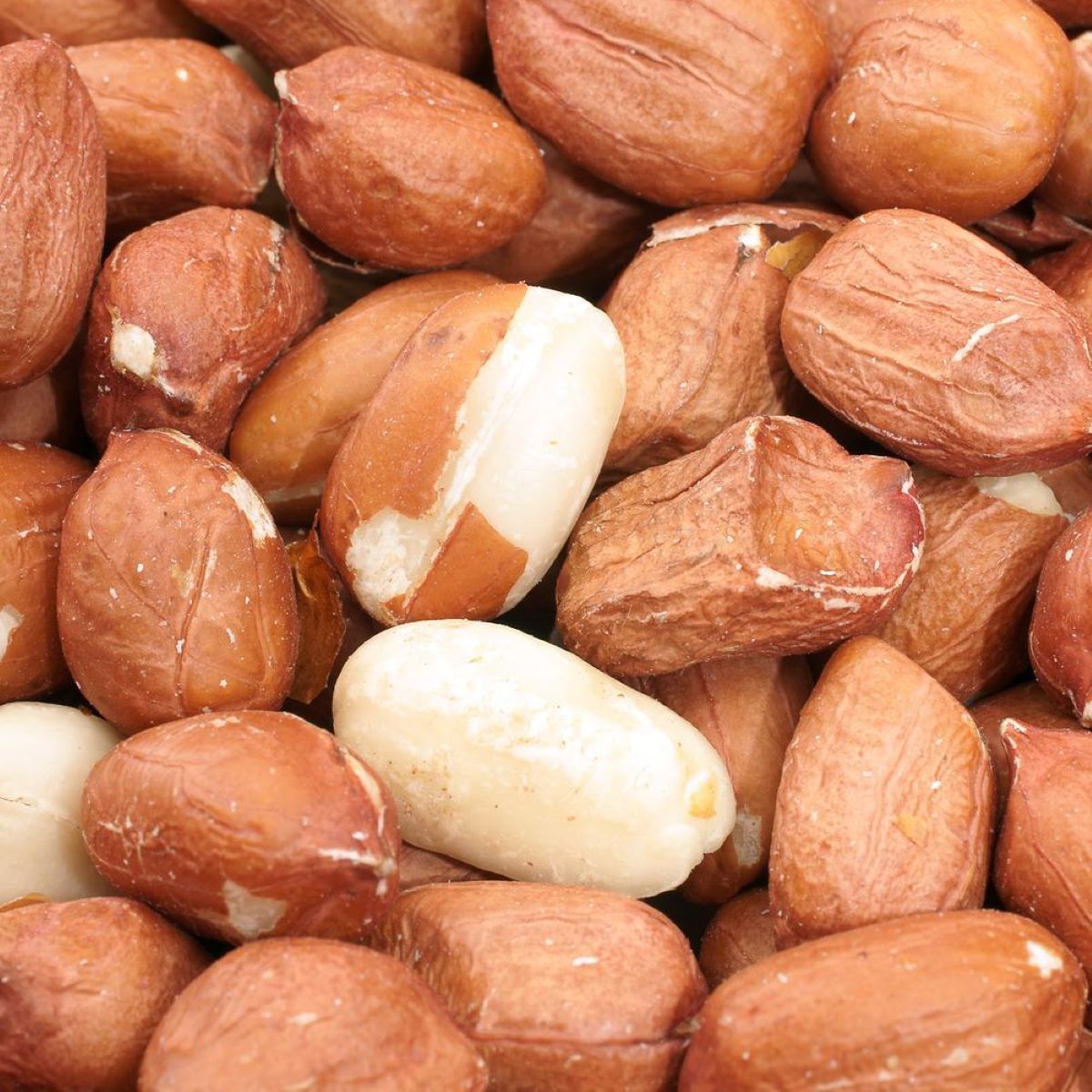
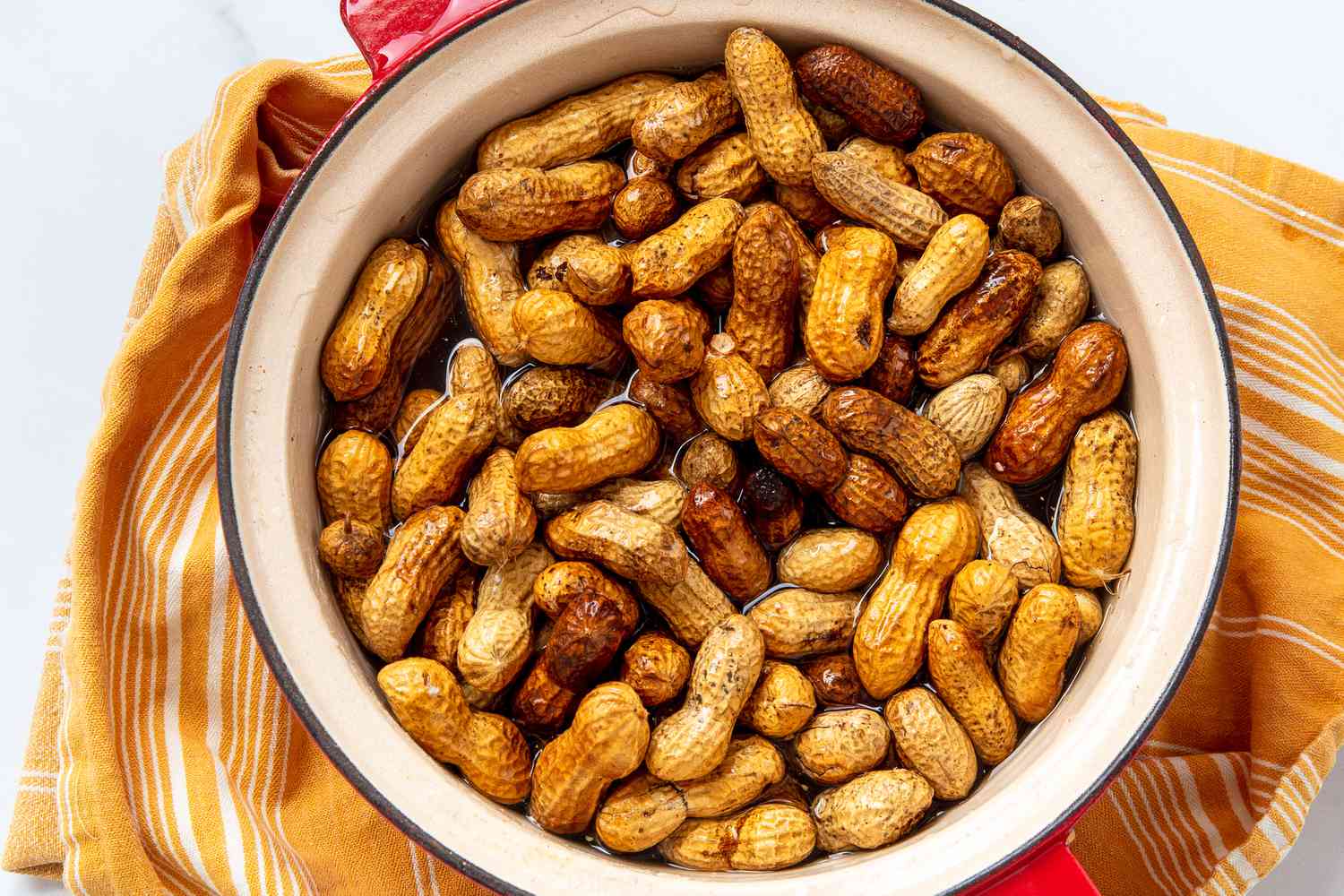
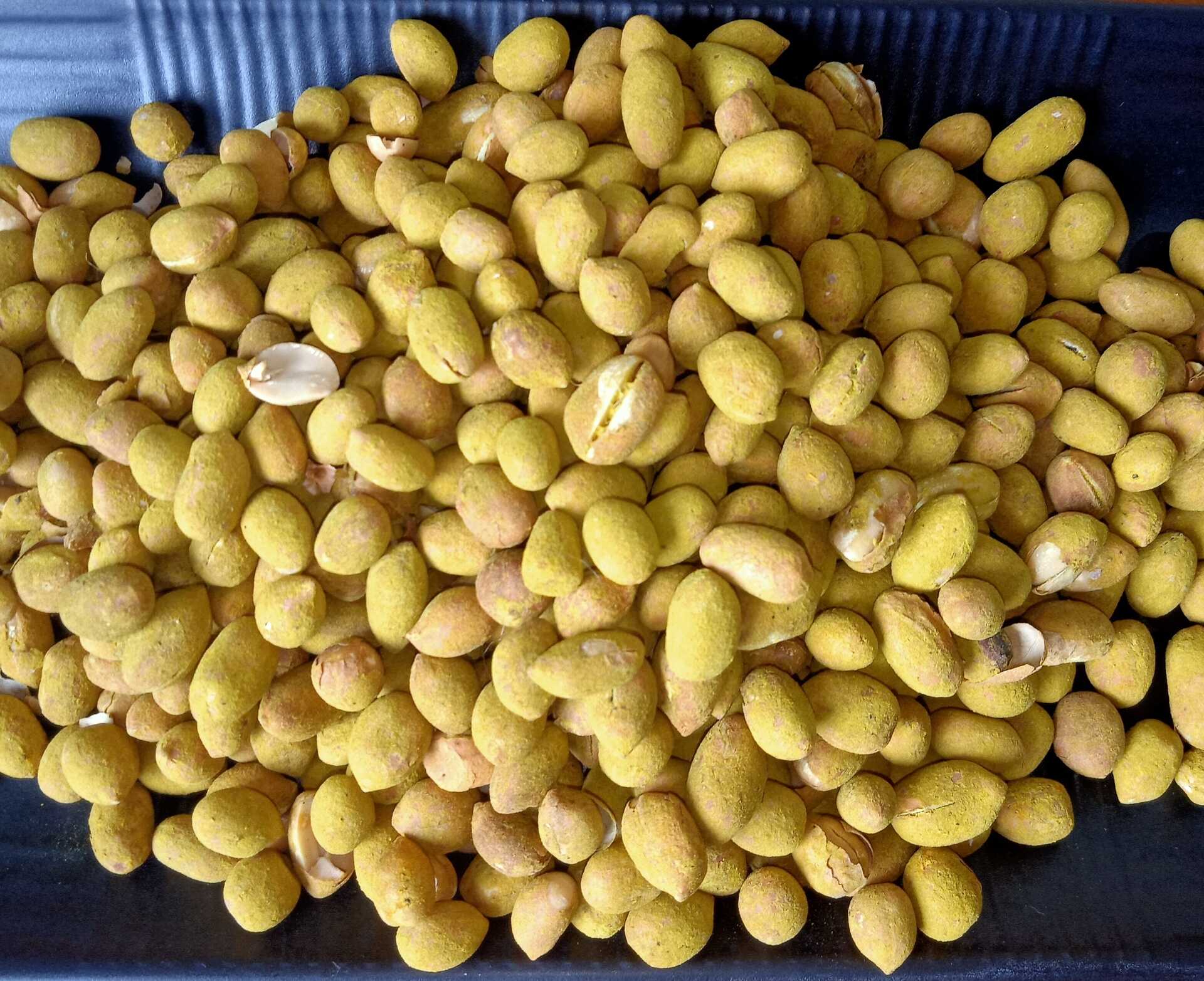
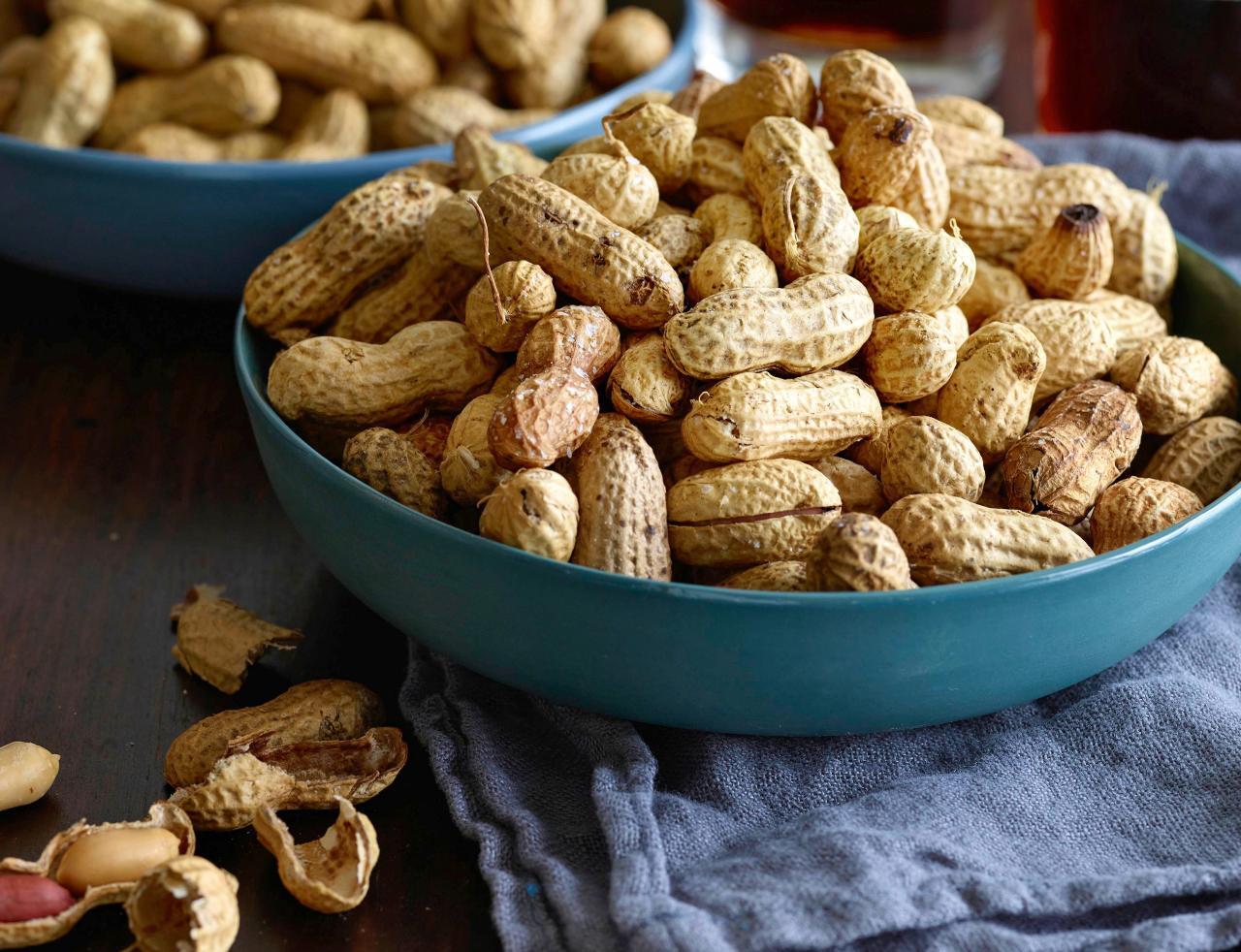
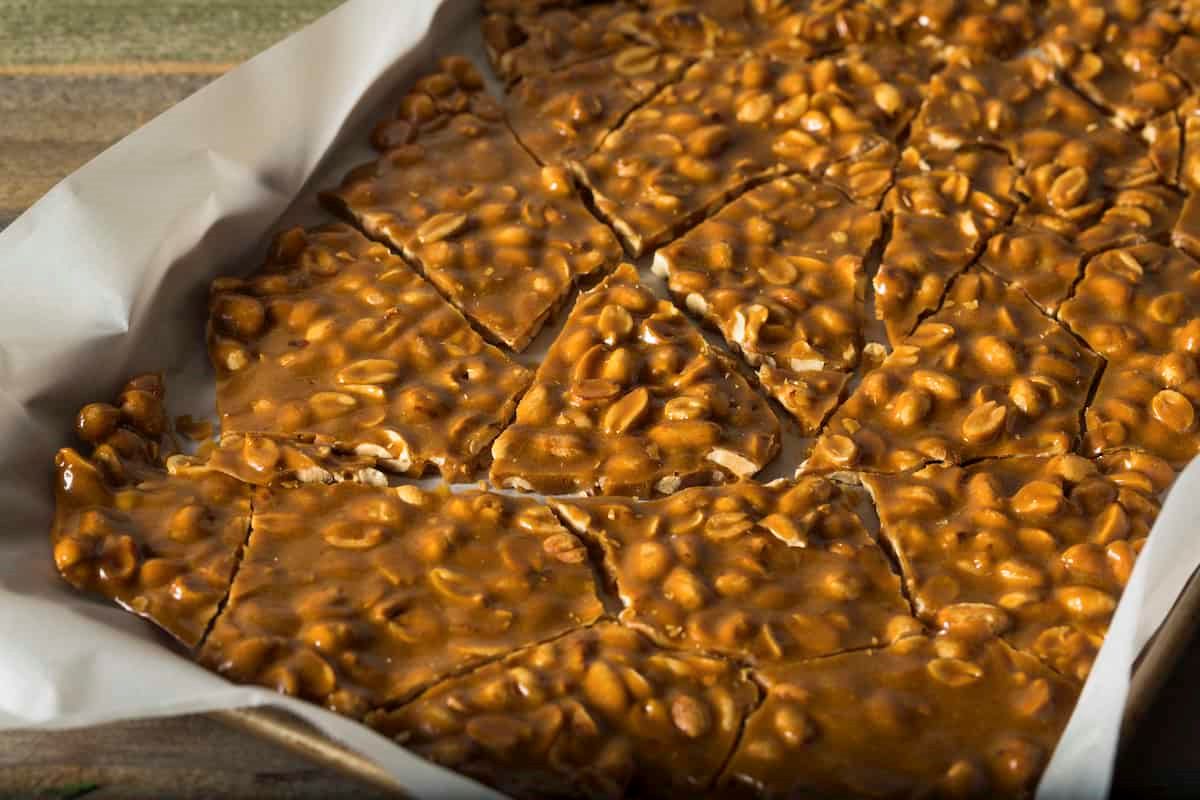
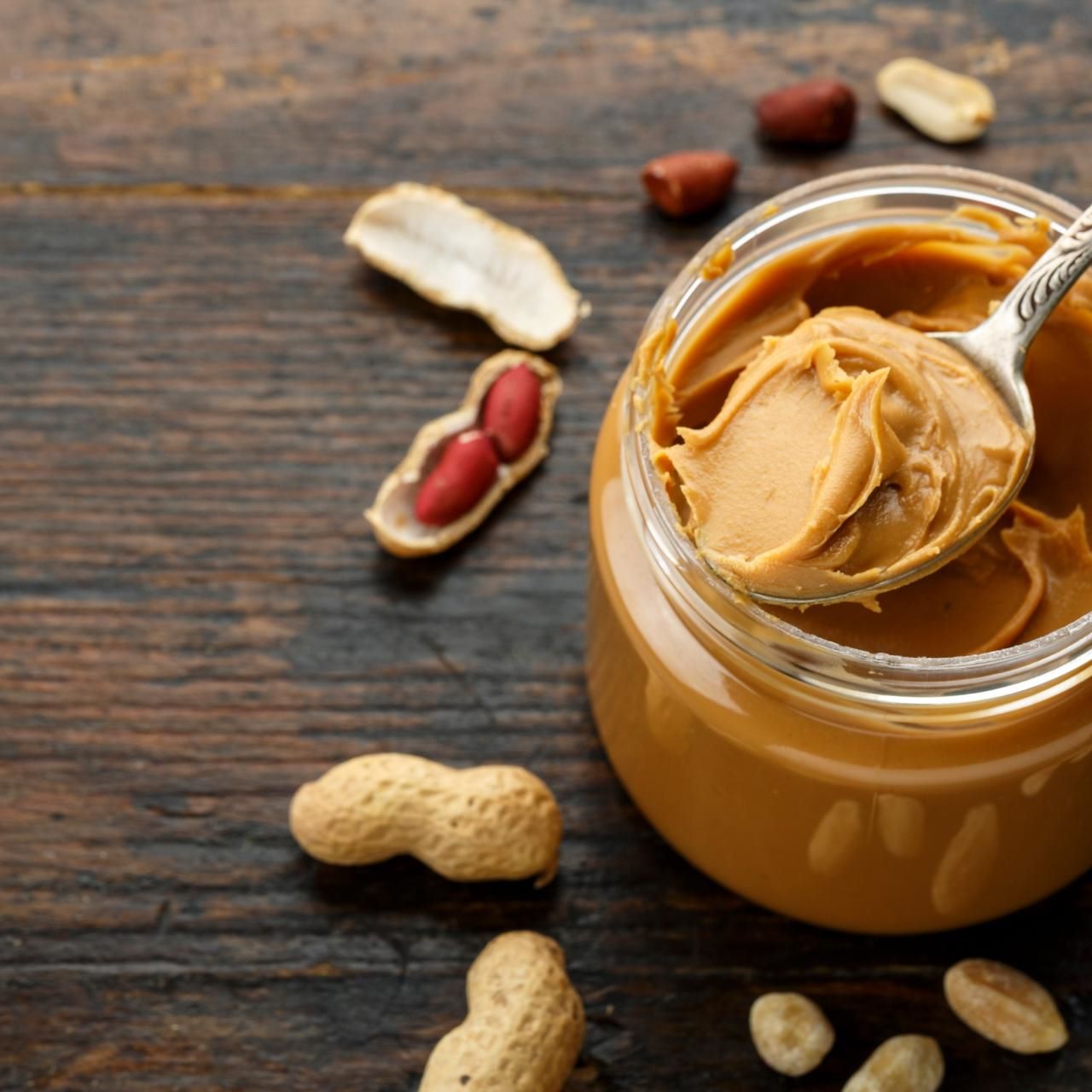
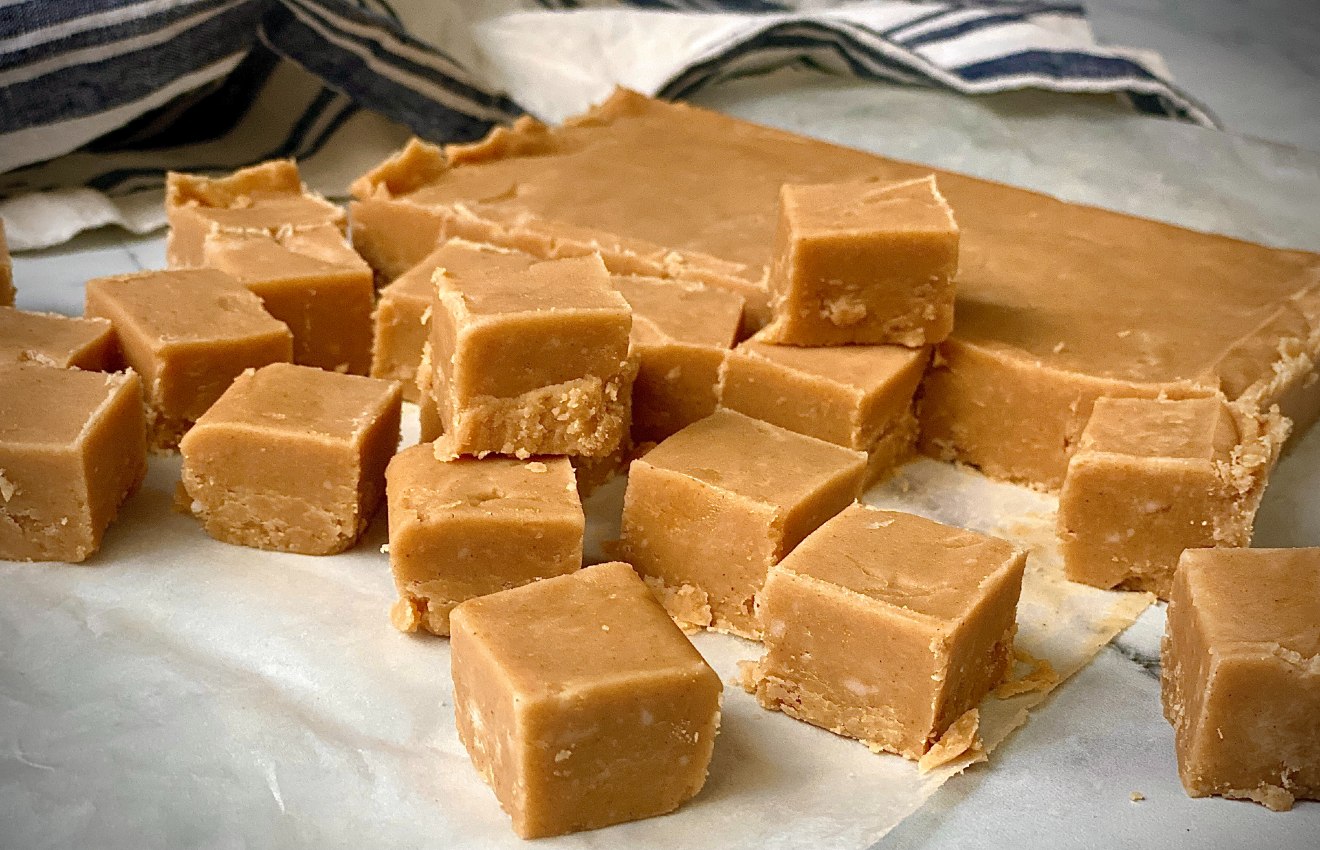
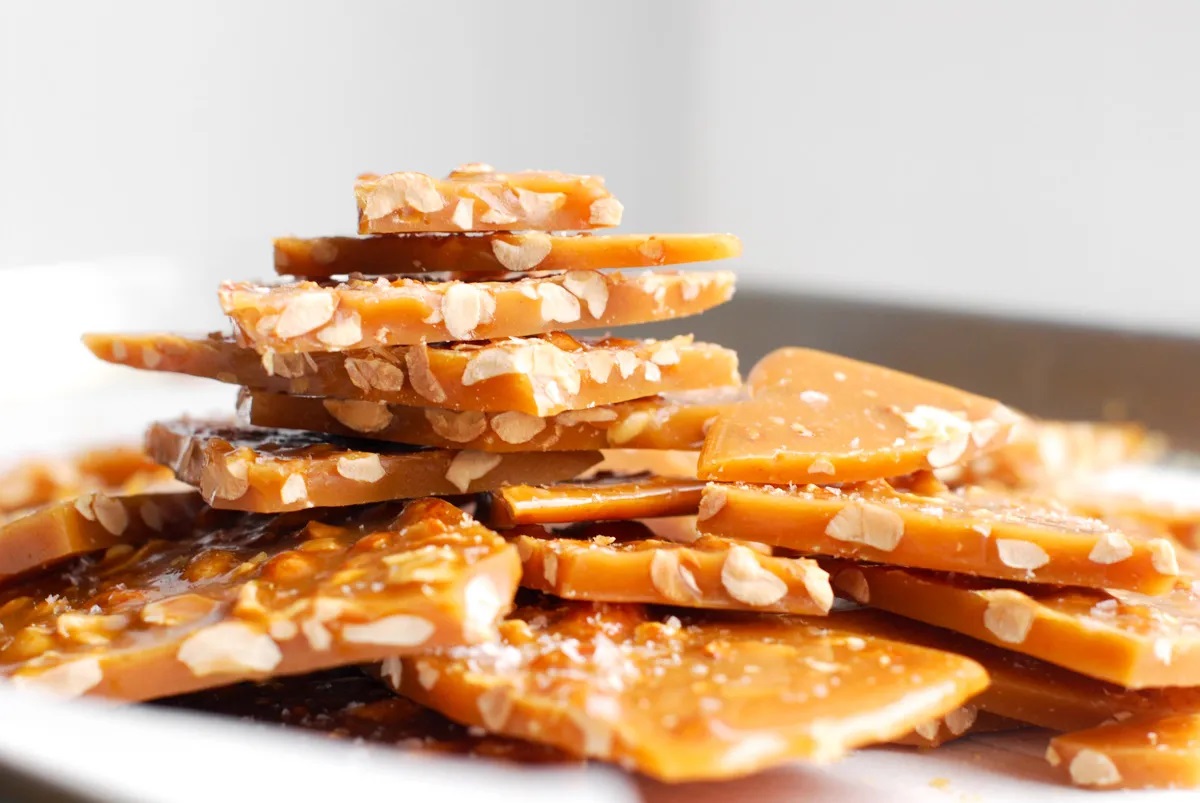
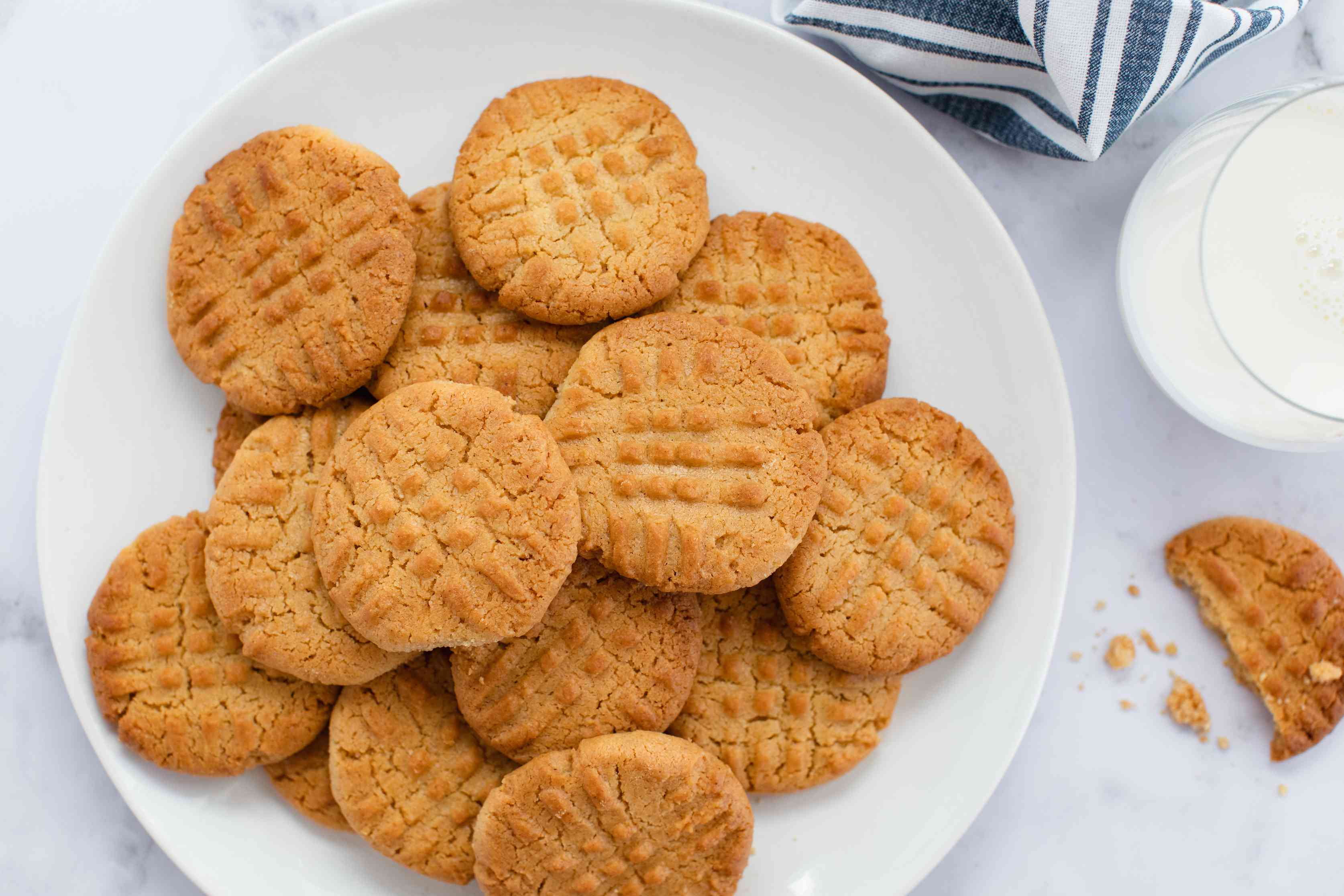
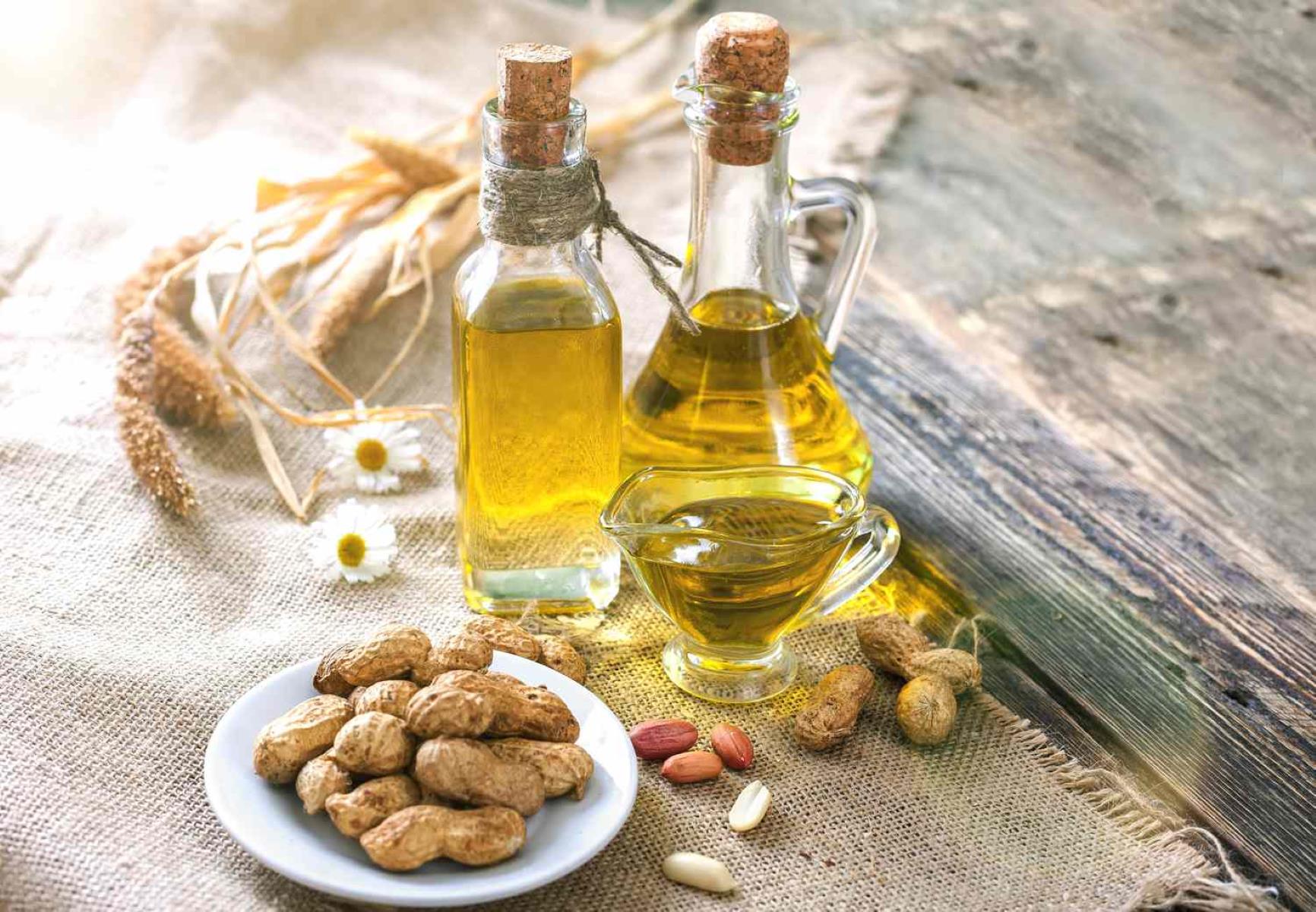
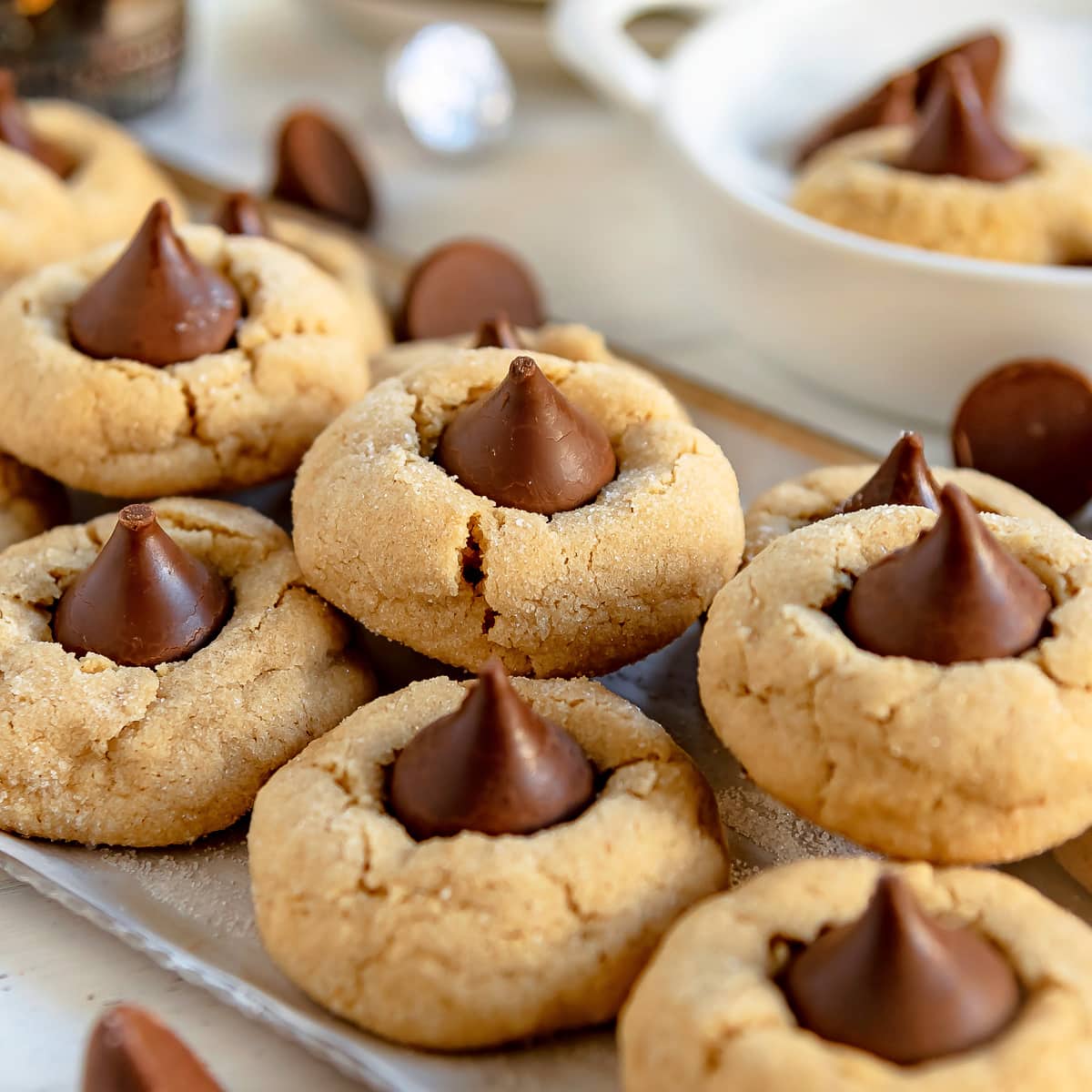
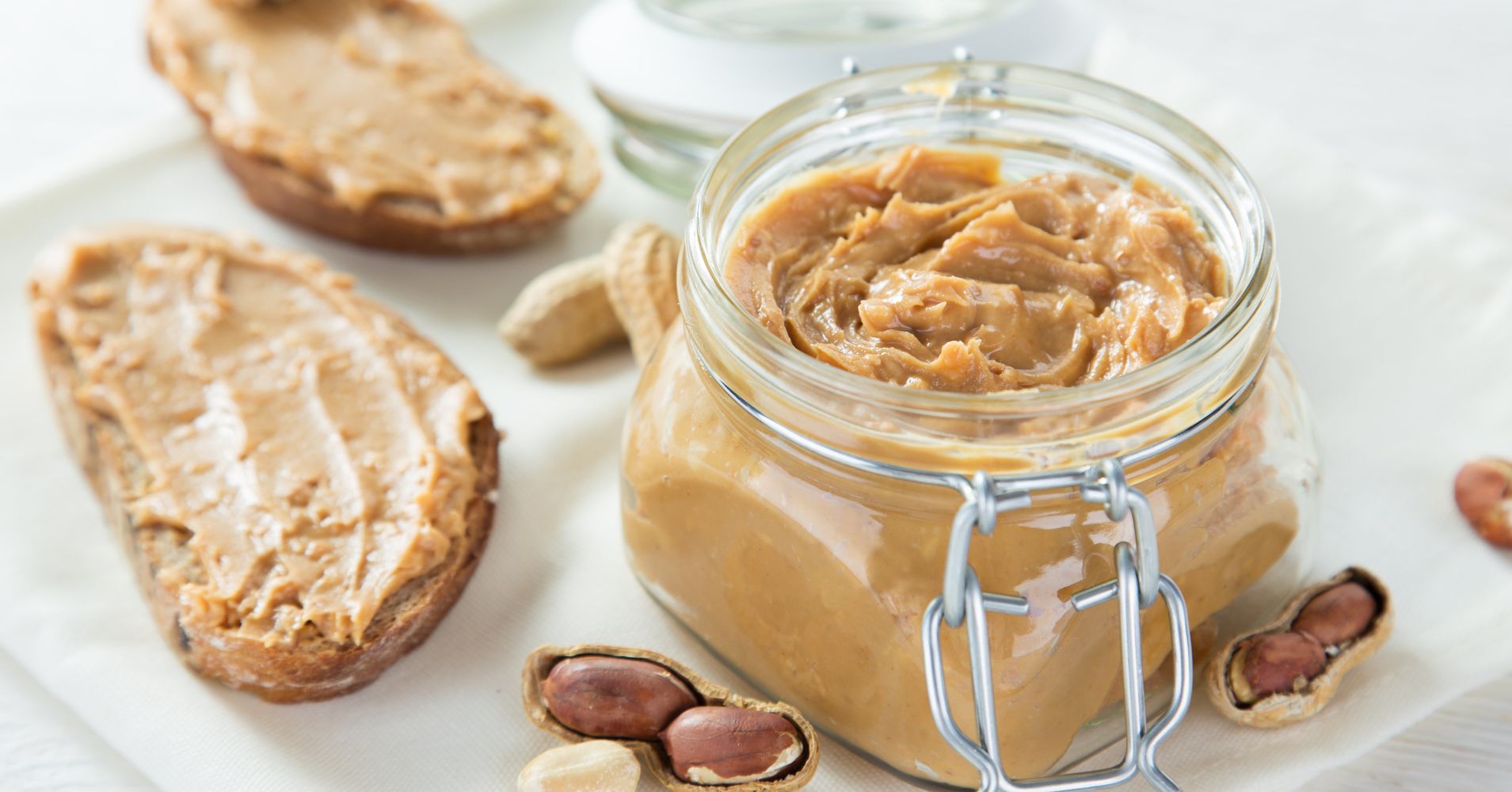

0 thoughts on “How To Store Peanuts”